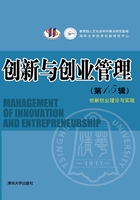
1 创业者的性格优势
曾任美国心理学会主席的Seligman是一位真正第一次系统地提出积极心理学理论并将其付诸实践的心理学家。以Seligman为代表的心理学家们认为,心理学不仅要关注心理疾病及其治疗,更要关注让所有人的生活更有意义,鉴别和培养天才![Seligman M. Building human strength: psychology's forgotten mission[J]. APA Monitor, 1998, (1):2.](https://epubservercos.yuewen.com/BC5419/8171499304993601/epubprivate/OEBPS/Images/note.png?sign=1734180895-E3yeWwpIedCSlnAQvVvYiLiycQclfuKW-0-7c522718d5dfad65610cb98b7b74c9bd) 。如果从精神治疗的角度来看,积极心理学的实践者致力于培养人的积极情绪和积极的性格特质,而在更广泛的应用方面,积极心理学可以促进组织与机构的积极、健康地运行
。如果从精神治疗的角度来看,积极心理学的实践者致力于培养人的积极情绪和积极的性格特质,而在更广泛的应用方面,积极心理学可以促进组织与机构的积极、健康地运行![Seligman M, Csikszentmihalyi M. Positive psychology: an introduction [J]. American Psychologist, 2000, 55:5-14.](https://epubservercos.yuewen.com/BC5419/8171499304993601/epubprivate/OEBPS/Images/note.png?sign=1734180895-E3yeWwpIedCSlnAQvVvYiLiycQclfuKW-0-7c522718d5dfad65610cb98b7b74c9bd) 。
。
性格优势作为积极心理学研究的核心领域之一,是对人类有益的人格特征,有助于人类实现良好的个人生活、和谐的社会团体以及卓越而道德的社会![Park N, Peterson C, Seligman M. Character strengths in fifty-four nations and the fifty US states[J]. Journal of Positive Psychology, 2006, 1(3):118-129.](https://epubservercos.yuewen.com/BC5419/8171499304993601/epubprivate/OEBPS/Images/note.png?sign=1734180895-E3yeWwpIedCSlnAQvVvYiLiycQclfuKW-0-7c522718d5dfad65610cb98b7b74c9bd) 。对性格优势的实证分析研究表明,性格优势的发展与积极情绪、工作投入感、生活的满意度和生活质量具有相关性
。对性格优势的实证分析研究表明,性格优势的发展与积极情绪、工作投入感、生活的满意度和生活质量具有相关性![Peterson C, Ruch W, Beermann U, et al. Strengths of character, orientations to happiness, and life satisfaction[J]. The Journal of Positive Psychology, 2007, (2):149-156.](https://epubservercos.yuewen.com/BC5419/8171499304993601/epubprivate/OEBPS/Images/note.png?sign=1734180895-E3yeWwpIedCSlnAQvVvYiLiycQclfuKW-0-7c522718d5dfad65610cb98b7b74c9bd) 。Peterson和Park
。Peterson和Park![Peterson C, Park N. Character strengths in organizations [J]. Journal of Organizational Behavior, 2006, 27:1149-1154.](https://epubservercos.yuewen.com/BC5419/8171499304993601/epubprivate/OEBPS/Images/note.png?sign=1734180895-E3yeWwpIedCSlnAQvVvYiLiycQclfuKW-0-7c522718d5dfad65610cb98b7b74c9bd) 指出,一些性格优势能够预测组织中人的积极行为,如热情和希望与工作满意度相关
指出,一些性格优势能够预测组织中人的积极行为,如热情和希望与工作满意度相关![Peterson C, Stephens J P, Park N, et al. Strengths of character and work[M]//Linley P A, Harrington S, Garcia N. Oxford handbook of positive psychology and work. New York: Oxford University Press, 2010:221-231.](https://epubservercos.yuewen.com/BC5419/8171499304993601/epubprivate/OEBPS/Images/note.png?sign=1734180895-E3yeWwpIedCSlnAQvVvYiLiycQclfuKW-0-7c522718d5dfad65610cb98b7b74c9bd) ,希望与生活满意度
,希望与生活满意度![Bailey T C, Eng W, Frisch M B, et al. Hope and optimism as related to life satisfaction[J]. Journal of Positive Psychology, 2007, (2):168-175.](https://epubservercos.yuewen.com/BC5419/8171499304993601/epubprivate/OEBPS/Images/note.png?sign=1734180895-E3yeWwpIedCSlnAQvVvYiLiycQclfuKW-0-7c522718d5dfad65610cb98b7b74c9bd) 、韧性
、韧性![Peterson C, Ruch W, Beermann U, et al. Strengths of character, orientations to happiness, and life satisfaction[J]. The Journal of Positive Psychology, 2007, (2):149-156.](https://epubservercos.yuewen.com/BC5419/8171499304993601/epubprivate/OEBPS/Images/note.png?sign=1734180895-E3yeWwpIedCSlnAQvVvYiLiycQclfuKW-0-7c522718d5dfad65610cb98b7b74c9bd) 、工作绩效
、工作绩效![Peterson S J, Byron K. Exploring the role of hope in job performance: results from four studies[J]. Journal of Organizational Behavior, 2008, (29):785-803.](https://epubservercos.yuewen.com/BC5419/8171499304993601/epubprivate/OEBPS/Images/note.png?sign=1734180895-E3yeWwpIedCSlnAQvVvYiLiycQclfuKW-0-7c522718d5dfad65610cb98b7b74c9bd) 和面向未来的责任导向
和面向未来的责任导向![Peterson C, Seligman M. Character Strengths and Virtues: A Handbook and Classification[M]. New York: Oxford University Press, 2004.](https://epubservercos.yuewen.com/BC5419/8171499304993601/epubprivate/OEBPS/Images/note.png?sign=1734180895-E3yeWwpIedCSlnAQvVvYiLiycQclfuKW-0-7c522718d5dfad65610cb98b7b74c9bd) 等具有相关性。性格优势大部分属于特质类的人体特征,在很长一段时间内具有相当的稳定性。
等具有相关性。性格优势大部分属于特质类的人体特征,在很长一段时间内具有相当的稳定性。
Peterson和Seligman![Peterson C, Seligman M. Character Strengths and Virtues: A Handbook and Classification[M]. New York: Oxford University Press, 2004.](https://epubservercos.yuewen.com/BC5419/8171499304993601/epubprivate/OEBPS/Images/note.png?sign=1734180895-E3yeWwpIedCSlnAQvVvYiLiycQclfuKW-0-7c522718d5dfad65610cb98b7b74c9bd) 邀请全世界50多位杰出的青年心理学家,从对人类社会影响最为广泛的哲学、宗教和文化体系中提取了全人类普遍具有的24项性格优势,并归类为6大美德,即“智慧与知识”“勇气”“仁慈”“公正”“节制”“自我超越”,最终形成了《性格优势与美德分类手册》,为心理学更为系统地对人的性格优势和美德进行分类和评估提供了工具。Park和Peterson
邀请全世界50多位杰出的青年心理学家,从对人类社会影响最为广泛的哲学、宗教和文化体系中提取了全人类普遍具有的24项性格优势,并归类为6大美德,即“智慧与知识”“勇气”“仁慈”“公正”“节制”“自我超越”,最终形成了《性格优势与美德分类手册》,为心理学更为系统地对人的性格优势和美德进行分类和评估提供了工具。Park和Peterson![Park N, Peterson C. Moral competence and character strengths among adolescents: the development and validation of the values in action inventory of strengths for youth[J]. Journal of adolescence, 2006, 29(6):891-909.](https://epubservercos.yuewen.com/BC5419/8171499304993601/epubprivate/OEBPS/Images/note.png?sign=1734180895-E3yeWwpIedCSlnAQvVvYiLiycQclfuKW-0-7c522718d5dfad65610cb98b7b74c9bd) 等在不同国家进行了大量测评,并完善了性格优势的测量工具,即VIA优势量表(Values in Action Inventory of Strengths,VIA-IS)。VIA-IS对现有的人格特质理论在评估内容和目的上进行了有益的补充。VIA-IS测量的是性格优势,即人格特质的积极部分,可以指导人们发挥自己的现实能力和潜在能力以促进良好人格的发展。其测量内容不仅仅涵盖个体的生理机制、外部行为,更注重社会文化环境的影响,强调社会文化对人格的塑造功能和积极人格的可成长性
等在不同国家进行了大量测评,并完善了性格优势的测量工具,即VIA优势量表(Values in Action Inventory of Strengths,VIA-IS)。VIA-IS对现有的人格特质理论在评估内容和目的上进行了有益的补充。VIA-IS测量的是性格优势,即人格特质的积极部分,可以指导人们发挥自己的现实能力和潜在能力以促进良好人格的发展。其测量内容不仅仅涵盖个体的生理机制、外部行为,更注重社会文化环境的影响,强调社会文化对人格的塑造功能和积极人格的可成长性![段文杰,李婷婷,张永红.优势行动价值问卷及其应用研究进展[J].中国临床心理学杂志,2011, 19(2):205-208.](https://epubservercos.yuewen.com/BC5419/8171499304993601/epubprivate/OEBPS/Images/note.png?sign=1734180895-E3yeWwpIedCSlnAQvVvYiLiycQclfuKW-0-7c522718d5dfad65610cb98b7b74c9bd) 。虽然已有的创业者特质研究并未将性格优势引入,但是其中一些研究成果对于创业者核心性格优势的识别而言具有一定的借鉴意义。
。虽然已有的创业者特质研究并未将性格优势引入,但是其中一些研究成果对于创业者核心性格优势的识别而言具有一定的借鉴意义。
创业活动的核心主体是创业者。Shane和Venkataraman![Shane S, Ventakaraman S. The promise of entrepreneurship as a field of research[J]. Academy of Management Review, 2000, 25 (1):217-226.](https://epubservercos.yuewen.com/BC5419/8171499304993601/epubprivate/OEBPS/Images/note.png?sign=1734180895-E3yeWwpIedCSlnAQvVvYiLiycQclfuKW-0-7c522718d5dfad65610cb98b7b74c9bd) 认为,创业研究是“考察什么人通过何种方式去发现、评价和开发创造未来商品和服务的机会”,其提出的创业研究的三个基本问题之一是“为什么是一些人而不是另一些人能够发现和开发这些机会”。“创业者”是创业学术研究中特别关注的对象
认为,创业研究是“考察什么人通过何种方式去发现、评价和开发创造未来商品和服务的机会”,其提出的创业研究的三个基本问题之一是“为什么是一些人而不是另一些人能够发现和开发这些机会”。“创业者”是创业学术研究中特别关注的对象![Carsrud, A, Brännback M. Entrepreneurial motivations: what do we still need to know?[J]. Journal of Small Business Management, 2011, 49(1):9-26.](https://epubservercos.yuewen.com/BC5419/8171499304993601/epubprivate/OEBPS/Images/note.png?sign=1734180895-E3yeWwpIedCSlnAQvVvYiLiycQclfuKW-0-7c522718d5dfad65610cb98b7b74c9bd) ,不少管理学者以及心理学家围绕“谁是创业者”的问题都开展过一些研究,试图发现创业者与非创业者之间的差异。一直以来,学者们热衷于识别创业者特质,认为创业者富有创新精神
,不少管理学者以及心理学家围绕“谁是创业者”的问题都开展过一些研究,试图发现创业者与非创业者之间的差异。一直以来,学者们热衷于识别创业者特质,认为创业者富有创新精神![Schumpeter J A. The Theory of Economic Development: An Inquiry into Profits, Capital, Credit, Interest, and the Business Cycle(Vol. 55)[M]. Transaction Publishers, 1934. Baumol W J. Entrepreneurship, Management, and the Structure of Payoffs [M]. MIT Press, 1993.](https://epubservercos.yuewen.com/BC5419/8171499304993601/epubprivate/OEBPS/Images/note.png?sign=1734180895-E3yeWwpIedCSlnAQvVvYiLiycQclfuKW-0-7c522718d5dfad65610cb98b7b74c9bd) 、喜欢冒险
、喜欢冒险![Knight F. Risk Uncertainty and Profits[M]. New York: Houghton Mifflin, 1921.](https://epubservercos.yuewen.com/BC5419/8171499304993601/epubprivate/OEBPS/Images/note.png?sign=1734180895-E3yeWwpIedCSlnAQvVvYiLiycQclfuKW-0-7c522718d5dfad65610cb98b7b74c9bd) 、雄心勃勃
、雄心勃勃![Ahl H, Marlow S. Exploring the dynamics of gender, feminism and entrepreneurship: advancing debate to escape a dead end?[J]. Organization, 2012, 19(5):543-562.](https://epubservercos.yuewen.com/BC5419/8171499304993601/epubprivate/OEBPS/Images/note.png?sign=1734180895-E3yeWwpIedCSlnAQvVvYiLiycQclfuKW-0-7c522718d5dfad65610cb98b7b74c9bd) 且勇敢无畏
且勇敢无畏![Schumpeter J A. The Theory of Economic Development: An Inquiry into Profits, Capital, Credit, Interest, and the Business Cycle(Vol. 55)[M]. Transaction Publishers, 1934.](https://epubservercos.yuewen.com/BC5419/8171499304993601/epubprivate/OEBPS/Images/note.png?sign=1734180895-E3yeWwpIedCSlnAQvVvYiLiycQclfuKW-0-7c522718d5dfad65610cb98b7b74c9bd) 。McClelland
。McClelland![McClelland D C. AchievingSociety[M]. New York: Simon and Schuster, 1961. McClelland D C. Power: The Inner Experience[M]. New York: Irvington Publishers, 1975. McClelland D C. Characteristics of successful entrepreneurs [J]. The Journal of Creative Behavior, 1987, 21(3):219-233.](https://epubservercos.yuewen.com/BC5419/8171499304993601/epubprivate/OEBPS/Images/note.png?sign=1734180895-E3yeWwpIedCSlnAQvVvYiLiycQclfuKW-0-7c522718d5dfad65610cb98b7b74c9bd) 认为,与非创业者相比,创业者具有更强烈的成就需求、自治能力、权力欲和独立性。Miller、KetsDeVries和Toulouse
认为,与非创业者相比,创业者具有更强烈的成就需求、自治能力、权力欲和独立性。Miller、KetsDeVries和Toulouse![Miller D, Kets de Vries M, Toulouse J M. Top executive locus of control and its relationship to strategy-making, structure, and environment[J]. Academy of Management Journal, 1982, 25(2):237-253.](https://epubservercos.yuewen.com/BC5419/8171499304993601/epubprivate/OEBPS/Images/note.png?sign=1734180895-E3yeWwpIedCSlnAQvVvYiLiycQclfuKW-0-7c522718d5dfad65610cb98b7b74c9bd) 发现,成功的创业者倾向于相信自己能够控制自己的命运,而不是受环境控制。最近的创业研究同样显示,创业者在心理特征方面具有特殊性,如创业自我效能
发现,成功的创业者倾向于相信自己能够控制自己的命运,而不是受环境控制。最近的创业研究同样显示,创业者在心理特征方面具有特殊性,如创业自我效能![Markman G, Balkin D, Baron R. Inventors and new venture formation: the effects of general self-efficacy and regretful thinking [J]. Entrepreneurship Theory and Practice, 2002, 27 (2):149-165. Rauch A, Frese M. Let's put the person back into entrepreneurship research: a meta-analysis on the relationship between business owners' personality traits, business creation, and success[J]. Journal of Working Organization Psychology, 2007, 16(4):353-385.](https://epubservercos.yuewen.com/BC5419/8171499304993601/epubprivate/OEBPS/Images/note.png?sign=1734180895-E3yeWwpIedCSlnAQvVvYiLiycQclfuKW-0-7c522718d5dfad65610cb98b7b74c9bd) ,成就动机、积极人格、风险倾向、压力承受度、自制
,成就动机、积极人格、风险倾向、压力承受度、自制![Rauch A, Frese M. Let's put the person back into entrepreneurship research: a meta-analysis on the relationship between business owners' personality traits, business creation, and success[J]. Journal of Working Organization Psychology, 2007, 16(4):353-385.](https://epubservercos.yuewen.com/BC5419/8171499304993601/epubprivate/OEBPS/Images/note.png?sign=1734180895-E3yeWwpIedCSlnAQvVvYiLiycQclfuKW-0-7c522718d5dfad65610cb98b7b74c9bd) ,大五人格
,大五人格![Zhao H, Seibert S E. The Big Five personality dimensions and entrepreneurial status: a meta-analytical review[J]. Journal of Applied Psychology, 2006, 91(2):259-271.](https://epubservercos.yuewen.com/BC5419/8171499304993601/epubprivate/OEBPS/Images/note.png?sign=1734180895-E3yeWwpIedCSlnAQvVvYiLiycQclfuKW-0-7c522718d5dfad65610cb98b7b74c9bd) ,激情
,激情![Cardon M S, Zietsma C, Saparito P, et al. A tale of passion: new insights into entrepreneurship from a parenthood metaphor[J]. Journal of Business Venturing, 2005, 20(1):23-45.](https://epubservercos.yuewen.com/BC5419/8171499304993601/epubprivate/OEBPS/Images/note.png?sign=1734180895-E3yeWwpIedCSlnAQvVvYiLiycQclfuKW-0-7c522718d5dfad65610cb98b7b74c9bd) ,自尊
,自尊![Arora P, Haynie J M, Laurence G A. Counterfactual thinking and entrepreneurial self-efficacy: The moderating role of self-esteem and dispositional affect[J]. Entrepreneurship Theory and Practice, 2011, 37(2):359-374.](https://epubservercos.yuewen.com/BC5419/8171499304993601/epubprivate/OEBPS/Images/note.png?sign=1734180895-E3yeWwpIedCSlnAQvVvYiLiycQclfuKW-0-7c522718d5dfad65610cb98b7b74c9bd) ,追求幸福的动力
,追求幸福的动力![Hahn V C, Frese M, Binnewies C, et al. Happy and proactive? The role of hedonic and eudemonic well-being in business owners' personal initiative[J]. Entrepreneurship Theory and Practice, 2012, 36(1):97-114.](https://epubservercos.yuewen.com/BC5419/8171499304993601/epubprivate/OEBPS/Images/note.png?sign=1734180895-E3yeWwpIedCSlnAQvVvYiLiycQclfuKW-0-7c522718d5dfad65610cb98b7b74c9bd) ,以及认知、思维和情绪等
,以及认知、思维和情绪等![Mitchell R K, Busenitz L, Lant T, et al. Entrepreneurial cognition theory: rethinking the people side of entrepreneurship research[J]. Entrepreneurship Theory and Practice, 2002, 27(2):93-104. Mitchell R K, Busenitz L, Lant T, et al. The distinctive and inclusive domain of entrepreneurial cognition research [J]. Entrepreneurship Theory and Practice, 2004, 28(6):505-518. Mitchell R K, Busenitz L, Bird B, et al. The central question in entrepreneurial cognition research[J]. Entrepreneurship Theory and Practice, 2007, 31(1):1-27. Baron R A. Cognitive mechanisms in entrepreneurship: why and when entrepreneurs think differently than other people[J]. Journal of Business Venturing, 1988, 13(4):275-294. Baron R A. The cognitive perspective: a valuable tool for answering entrepreneurship's basic “why” questions[J]. Journal of Business Venturing, 2004, 19(2):22-239. Baron R. The role of affect in the entrepreneurial process [J]. Academy of Management Review, 2008, 33(2):328-340.](https://epubservercos.yuewen.com/BC5419/8171499304993601/epubprivate/OEBPS/Images/note.png?sign=1734180895-E3yeWwpIedCSlnAQvVvYiLiycQclfuKW-0-7c522718d5dfad65610cb98b7b74c9bd) 。
。
Linley等![Linley P A, Maltby J, Wood A M, et al. Character strengths in the united kingdom: the via inventory of strengths[J]. Personality & Individual Differences, 2007, 43(2):341-351.](https://epubservercos.yuewen.com/BC5419/8171499304993601/epubprivate/OEBPS/Images/note.png?sign=1734180895-E3yeWwpIedCSlnAQvVvYiLiycQclfuKW-0-7c522718d5dfad65610cb98b7b74c9bd) 通过研究发现,男性的核心性格优势为洞察力、公平、好奇心、好学和创造力,而女性的核心性格优势为公平、奉献、洞察力、好奇心及好学。创业一直以来是一种男性化倾向极强的活动
通过研究发现,男性的核心性格优势为洞察力、公平、好奇心、好学和创造力,而女性的核心性格优势为公平、奉献、洞察力、好奇心及好学。创业一直以来是一种男性化倾向极强的活动![Bird B, Brush C. A gendered perspective on organizational creation [J]. Entrepreneurship theory and practice, 2002, 26 (3):41-66.](https://epubservercos.yuewen.com/BC5419/8171499304993601/epubprivate/OEBPS/Images/note.png?sign=1734180895-E3yeWwpIedCSlnAQvVvYiLiycQclfuKW-0-7c522718d5dfad65610cb98b7b74c9bd) ,而社会的男性化规范会进一步强化对创业者“男性化”的预期
,而社会的男性化规范会进一步强化对创业者“男性化”的预期![Ahl H. Why research on women entrepreneurs needs new directions[J]. Entrepreneurship Theory and Practice, 2006, 30 (5):595-621.](https://epubservercos.yuewen.com/BC5419/8171499304993601/epubprivate/OEBPS/Images/note.png?sign=1734180895-E3yeWwpIedCSlnAQvVvYiLiycQclfuKW-0-7c522718d5dfad65610cb98b7b74c9bd) ,因此,创业者的核心性格优势,可能与男性的核心性格优势有较强的关联。
,因此,创业者的核心性格优势,可能与男性的核心性格优势有较强的关联。
本文以下部分运用来自中国的包含290个样本的创业者和非创业者调查数据,采用Peterson和Seligman![Peterson C, Seligman M. Character Strengths and Virtues: A Handbook and Classification[M]. New York: Oxford University Press, 2004.](https://epubservercos.yuewen.com/BC5419/8171499304993601/epubprivate/OEBPS/Images/note.png?sign=1734180895-E3yeWwpIedCSlnAQvVvYiLiycQclfuKW-0-7c522718d5dfad65610cb98b7b74c9bd) 提出的24类性格优势方式,通过创业者和非创业者的对比,识别创业者的核心性格优势。
提出的24类性格优势方式,通过创业者和非创业者的对比,识别创业者的核心性格优势。